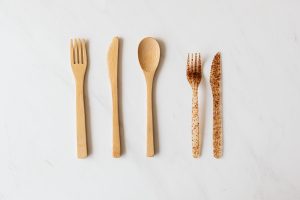Der Akkusativ – The accusative case
The accusative case is used to describe the direct object of a sentence. The direct object is the immediate recipient of an action or event:
| Lukas schreibt eine Übung für Mathe. | Lukas writes (is writing) an exercise/problem for Math. |
| Er liest das Buch für den Unterricht. | He reads (is reading) the book for class. |
| Jeden Tag bringt er einen Bleistift. | He brings a pencil every day. |
| Lukas speichert keine Notizen vom Unterricht. | Lukas saves no notes from the class. (Lukas does not save notes from class.) |

Definite and indefinite articles in the accusative case
Articles in the accusative case (there is no equivalent of the indefinite article in the plural, since, just like in English, you can’t say “a lentils”):
| the | a/an | none | english | |
| masculine | den Bleistift | einen Bleistift | keinen Bleistift | (pencil) |
| feminine | die Übung | eine Übung | keine Übung | (exercise) |
| neuter | das Buch | ein Buch | kein Buch | (book) |
| plural | die Notizen | Notizen | keine Notizen | (notes) |
Remember that the German phrase for “there is/there are” takes the accusative case:
| In diesem Foto gibt es zwei Messer, zwei Gabeln und einen Löffel. | In this picture there are two knives, two forks and a spoon. |
| Aber es gibt kein Glas! | But there is not a glass! |

Accusative prepositions
In addition to indicating the direct object of some sentences, the accusative case is also used with a few prepositions:
durch, für, gegen, ohne, and um/um…(herum) — through, for, against (with time – around), without and around (with time – at)
| Warum gehst du durch das Wohnzimmer? | Why are you going through the living room? |
| Wir tanzen um den Tisch (herum). | We dance (are dancing) around the table. |
| Ich bin gegen Unterricht am Freitag! | I am against class on Fridays! |
| Ohne das Referat bekommt Anna eine schlechte Note. | Without the oral presentation, Anna will get a bad grade. |
| Nicole kauft eine Lampe für das Schlafzimmer. | Nicole buys (is buying) a lamp for the bedroom. |
Accusative for telling time
Finally, the accusative case is used to describe specific times:
| Die Studenten lernen oft die ganze Nacht. | The students often study all night. |
| Mein Hund schläft den ganzen Tag! | My dog sleeps the entire day/all day long! |

